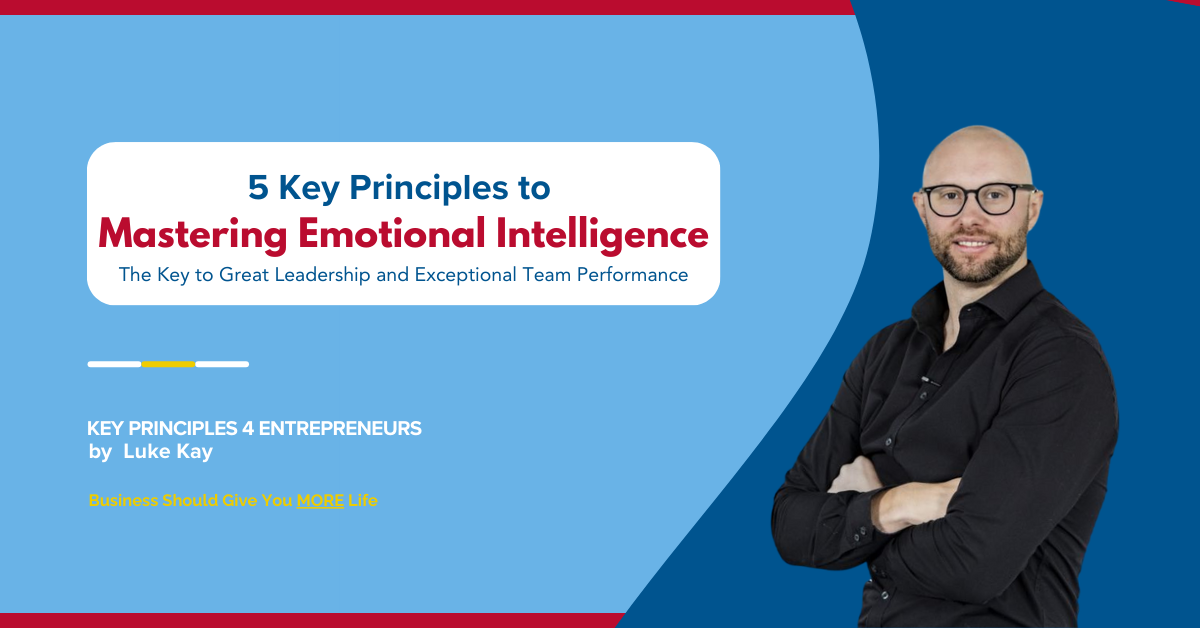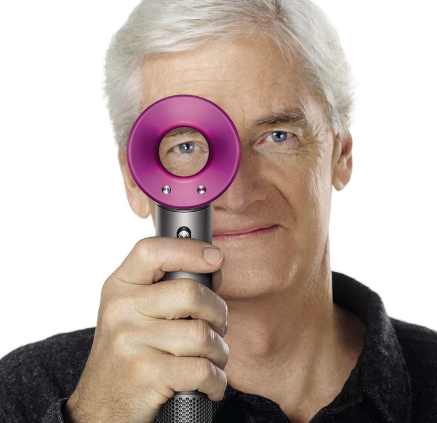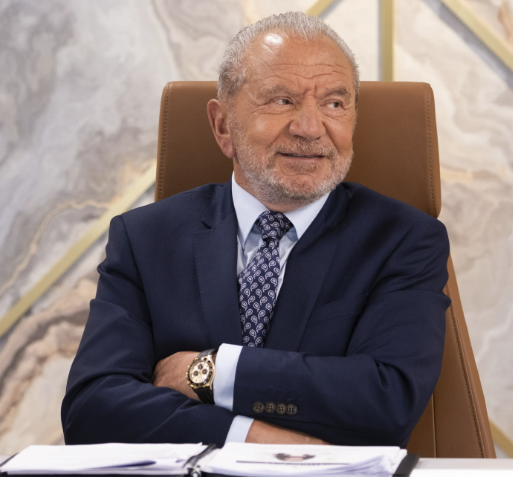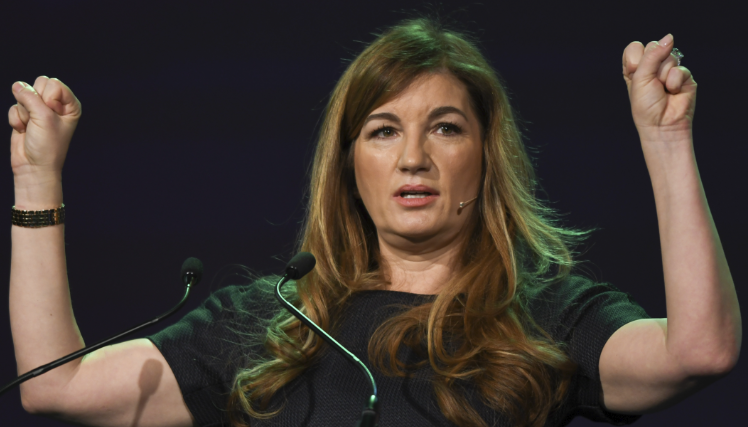
In the complex world of entrepreneurship, technical skills and business acumen are essential, but it’s emotional intelligence (EQ) that often separates good leaders from great ones. The ability to understand, use, and manage your own emotions in positive ways to relieve stress, communicate effectively, empathise with others, overcome challenges and defuse conflict is crucial for building high-performing teams and driving business success. Let’s explore how to master emotional intelligence for peak leadership performance.
Key Principle #1: Self-Awareness
The foundation of emotional intelligence is self-awareness – the ability to recognise and understand your own emotions and their impact on your behaviour and decisions.
Practice mindfulness to increase your emotional awareness. Keep an emotion journal to track patterns in your feelings and reactions. Regularly seek feedback from trusted colleagues and mentors.
Key Principle #1 Case Study: Dame Stephanie Shirley’s Self-Reflection
Dame Stephanie Shirley, founder of Freelance Programmers (later Xansa) and one of the UK’s most successful tech entrepreneurs, credits much of her success to her high level of self-awareness.
In her autobiography “Let It Go”, Shirley describes how understanding her own emotional responses, particularly in the face of gender discrimination, allowed her to navigate challenges and build a groundbreaking company. Her self-awareness also led her to recognise when it was time to step back from her leadership role, ensuring the company’s continued success.
Key Principle #2: Self-Regulation
Once you’re aware of your emotions, the next step is learning to manage them effectively, especially in high-pressure situations.
Develop techniques to manage stress and emotional reactions, such as deep breathing or counting to ten. Practice reframing negative situations to find positive aspects or learning opportunities.
Key Principle #2 Case Study: Sir James Dyson’s Resilience
Sir James Dyson, founder of Dyson Ltd, is renowned for his persistence in the face of failure – a clear sign of strong self-regulation.
Dyson famously created 5,126 failed prototypes before succeeding with his bagless vacuum cleaner. His ability to manage frustration and maintain motivation through years of setbacks was crucial to his eventual success. This emotional resilience has been a hallmark of Dyson’s leadership style and company culture.

Key Principle #3: Empathy
Empathy – the ability to understand and share the feelings of others – is crucial for effective leadership and team building.
Practise active listening, giving your full attention to team members and trying to understand their perspective. Regularly check in with team members about their feelings and challenges, not just their tasks and performance.
Key Principle #3 Case Study: Anita Roddick’s Compassionate Leadership
The late Dame Anita Roddick, founder of The Body Shop, was known for her high level of empathy, which shaped her business practices and leadership style.
Roddick’s empathy for both her employees and for global social issues led to pioneering ethical business practices, including fair trade partnerships and campaigns against animal testing. This empathetic approach not only created a positive company culture but also resonated with customers, driving The Body Shop’s success.

Key Principle #4: Social Skills
Strong social skills allow leaders to build relationships, manage conflicts, and inspire and influence others.
Work on your communication skills, both verbal and non-verbal. Practice giving constructive feedback. Develop your ability to build rapport with a wide range of people.
Key Principle #4 Case Study: Lord Alan Sugar’s Evolution
While Lord Alan Sugar, founder of Amstrad and star of The Apprentice, was initially known for his brusque style, he has demonstrated significant growth in his social skills over the years.
Sugar’s ability to adapt his communication style for different audiences – from boardroom negotiations to mentoring aspiring entrepreneurs on television – has been key to his sustained success across various business ventures and media appearances.
Key Principle #5: Motivation
High EQ leaders are skilled at motivating themselves and others, maintaining optimism and drive even in challenging circumstances.
Set clear, meaningful goals for yourself and your team. Cultivate a growth mindset that views challenges as opportunities. Regularly acknowledge and celebrate progress and achievements.
Key Principle #5 Case Study: Dame Karen Brady’s Inspiring Leadership
Dame Karen Brady, vice-chairman of West Ham United F.C. and former managing director of Birmingham City F.C., is known for her ability to motivate and inspire teams in the challenging world of football management.
Brady’s leadership style, which combines high expectations with strong support and recognition of achievements, has enabled her to succeed in a male-dominated industry. Her ability to motivate others has been crucial in turning around struggling football clubs and in her role as an advisor on The Apprentice.
Implementing Your Emotional Intelligence Strategy
Developing emotional intelligence is an ongoing process. Here are some steps to get started:
- Conduct an EQ self-assessment to identify your strengths and areas for improvement.
- Start a daily mindfulness practice to increase your emotional awareness.
- Seek out opportunities to practise empathy, such as mentoring junior team members.
- Invest in communication skills training to enhance your social skills.
- Set up a system for regular feedback from your team to track your EQ progress.
Remember, emotional intelligence is not fixed – it can be developed and improved over time with conscious effort and practice.
What’s one aspect of emotional intelligence that, if improved, could significantly enhance your leadership effectiveness and team performance?
Are you ready to step up your emotional intelligence and improve your leadership?
Book a FREE discovery call with me. We’ll assess your current EQ levels, identify key areas for development, and create a personalised strategy to enhance your emotional intelligence and leadership effectiveness.
Don’t let low EQ hold your business back – let’s unlock your full potential as an emotionally intelligent leader!
Still Not Sure?
If you want to find out more about how we can help you and your organisation feel free to book a FREE Business Discovery Call with me here.
It should only take 15/20 so I can find out a little more about You and Your Organisation and advise on the next steps.
Book a FREE Business Discovery Call
Events
We hold events on a monthly basis as part of our Business Growth Academy and 1-2-1 Business Coaching. If you want to attend one of our events for FREE and meet the rest of the entrepreneurs in our business growth community then please feel free to check out our events page or book onto our next ActionCOACH Business Growth workshop or our Annual Strategic Planning Day – Kickstart to 2025 by clicking on our events page here.





